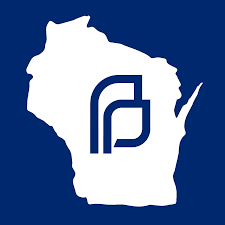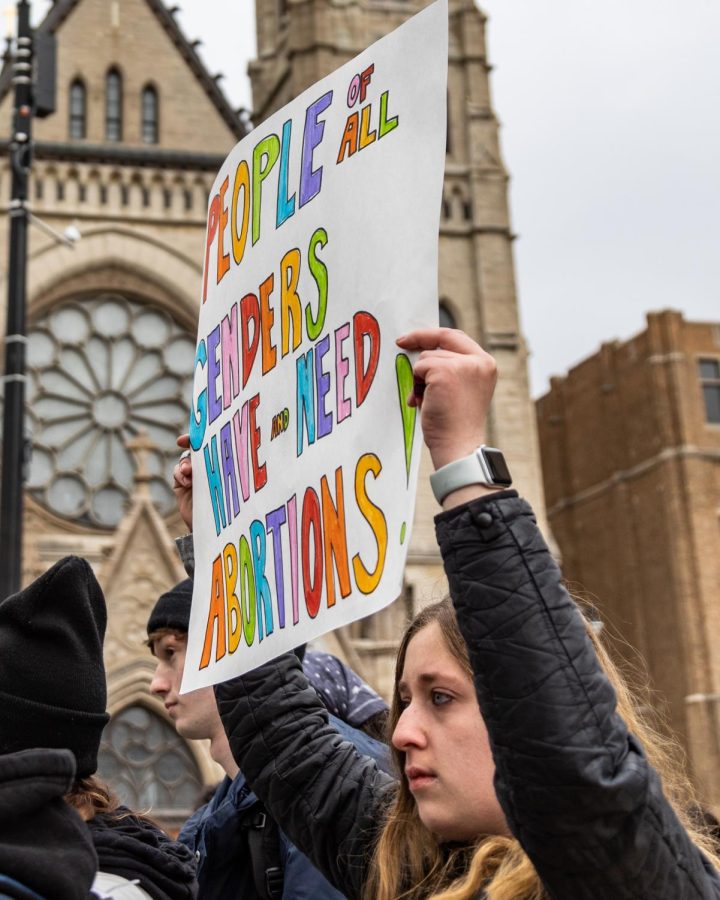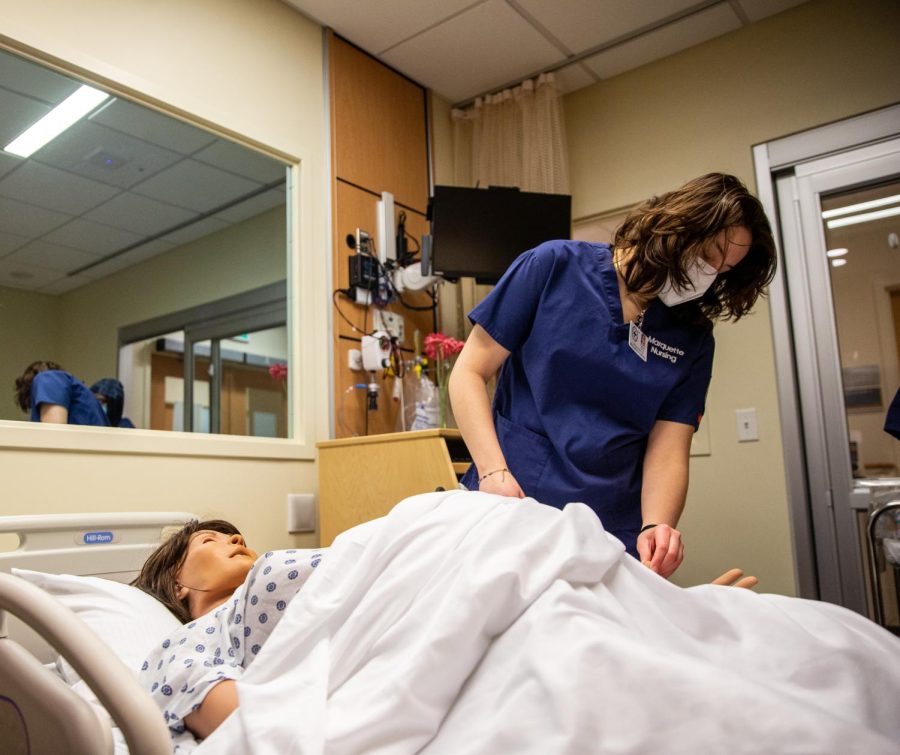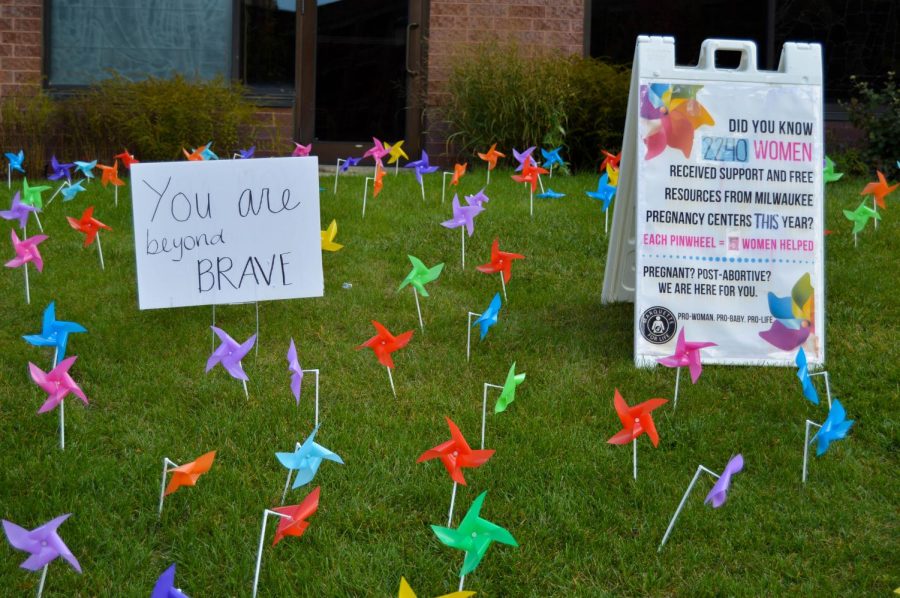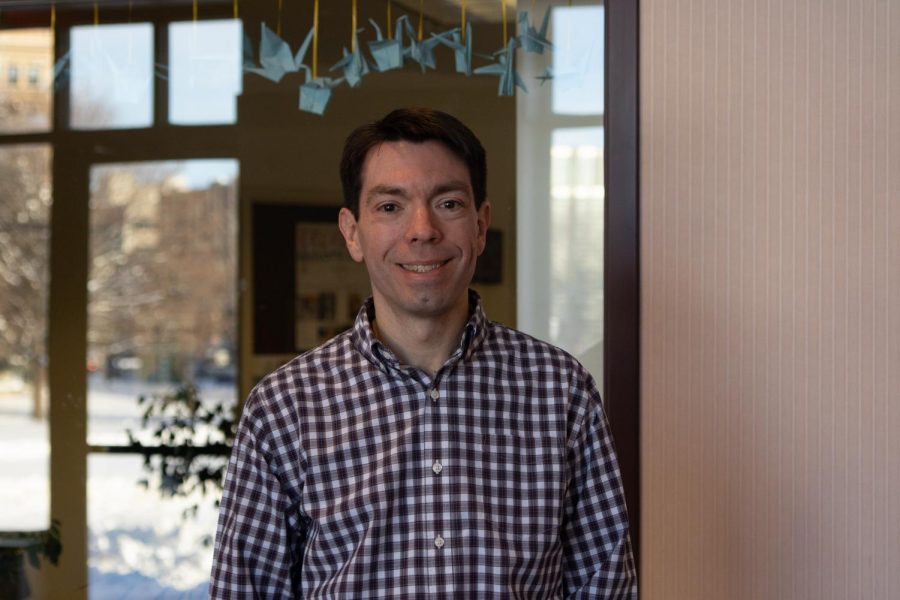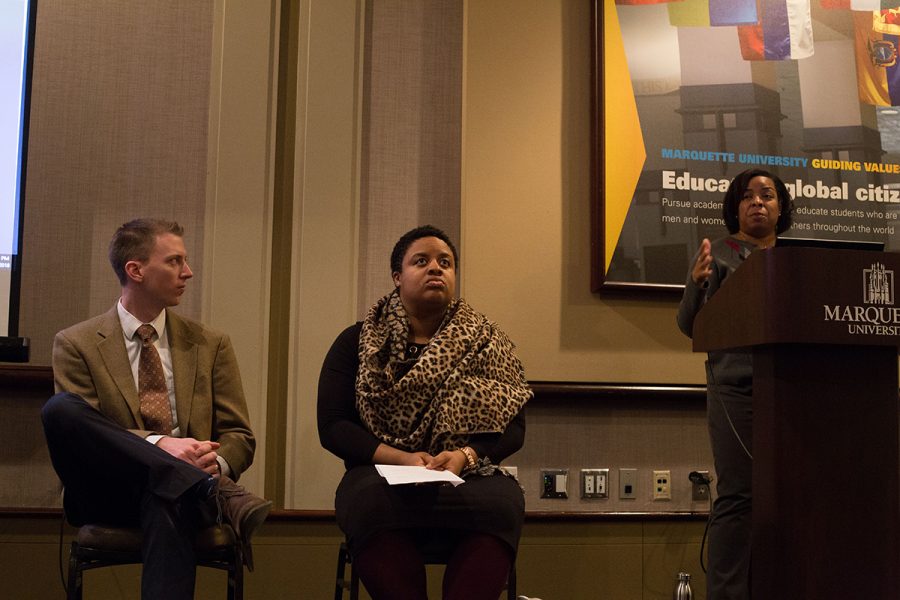“Joyful” and “devastating” were two words used to describe June 24, the day the United States Supreme Court voted to overturn Roe v. Wade.
For members of the Marquette community and across Wisconsin, some saw the ruling as a victory for the sanctity of life, while others saw it as a threat to already vulnerable populations. Roe v. Wade was overturned 6-3 , meaning that there is now no longer a constitutional right to an abortion.
“This is a joyful day and a momentous time for the pro-life movement, for the whole of humanity, and a step towards promoting a culture of life,” Marquette For Life, a pro-life student organization, said in a statement.
Marquette For Life also recognized that this is an emotional time for many people and they respect those who are having a hard time with the ruling.
“With that in mind, we are committed to supporting women with the health and resources they need, upholding the right of life from conception to natural death, and promoting care and justice for humans at all stages of life,” Marquette For Life said in a statement.
Marquette For Life were not the only ones who issued a statement following the Supreme Court’s decision.
“Drawing on our Jesuit heritage, Marquette’s respect for the sanctity of life is expressed in a special concern for the poor, the marginalized and the most vulnerable, which includes care for the unborn,” Marquette University said in a statement.
The statement then said that Marquette’s promise to their Catholic and Jesuit identity calls them to appreciate the “core human value of the right to life.”
It also said that Marquette supports laws, public policies and agencies that cherish life and aid pregnant and parenting women, “thus making it easier, safer and more economical to welcome children.”
The statement goes on to say that Marquette works for the demolishing of institutional injustices that establish critical challenges for pregnant women and struggling families.
Marquette said they acknowledge and respect the number of ways people will take in the Supreme Court’s decision, and that their 500-year tradition of Jesuit educated in based in the inquiry for truth, the revelation of knowledge and the distribution of varied perspectives.
After reading Marquette’s statement, Eliza Warner, a junior in the College of Arts & Sciences, said the statement declared what she would have predicted from a Catholic, Jesuit institution.
She also said that although she understands the pro-life beliefs that many Catholics uphold, she said Roe v. Wade being overturned places anybody with a uterus at a compromise for unsafe pregnancies.
“It puts LGBTQ+ rights at risk. It puts life-saving healthcare at risk,” Warner said in an email. “Everyone has the right to their own opinions, so they can believe that unborn fetuses are a vulnerable population worth saving, but many people fail to realize or acknowledge the impact that this rhetoric has on many other vulnerable populations,” Warner said in an email.
Warner said although this decision came as no surprise after the leaked draft opinion, she was devastated.
Samantha Schahczinski, a sophomore in the College of Arts & Sciences, said she was “appalled” at the Supreme Court’s decision despite noticing the years of deliberation around Roe v. Wade.
“I grew increasingly aware, especially as I reached high school, at how close I was to losing this right, now, as an individual who used contraception such as the birth control pill, I fear that I’m close to losing another important right that I feel childbearing individuals are entitled to,” Schahczinski said in an email.
With there no longer being a constitutional right to an abortion, access to such procedures will vary from state to state. Wisconsin currently has a pre-Roe law from 1849 banning all abortions except for when saving the life of the pregnant individual.
“I remain hopeful that Wisconsin’s pre-Roe prohibition on abortion will only be eclipsed by an authentic respect for life ethic. I pray that grace and compassion toward all women experiencing unintended pregnancies becomes the norm and that those who have experienced an abortion and its after-effects would find healing and wholeness,” Julaine Appling, President of Wisconsin Family Action, said in a statement.
Wisconsin Governor Tony Evers has said him and his administration will do “everything in their power” to stop the 1849 ban from being enforced.
“Our work to do the right thing for the people of this state must continue. We will fight this decision every way we can with every power we have,” Evers said in a statement.
Evers has also said he will provide clemency to any doctor that performs an abortion and is prosecuted with the 1849 law.
A Marquette University Law School Poll found that a majority of Americans were opposed to Roe v. Wade being overturned, 28% of the public being in favor and 72% opposing.
Now, abortion rights will be decided by states. Thirteen states with “trigger bans” will take effect within 30 days, including the states North Dakota, South Dakota, Idaho, Wyoming, Utah, Texas, Oklahoma, Missouri, Arkansas, Louisiana, Mississippi, Alabama, Tennessee and Kentucky.
Izzy Fonfara Drewel contributed to this story.
This story was written by Julia Abuzzahab and Megan Woolard. They can be reached at julianna.abuzzahab@marquette.edu and megan.woolard@marquette.edu and on Twitter @MeganWoolard4




